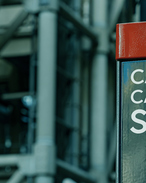This article is 21 years old. Images might not display.
Last Friday the commission's draft report said joint marketing and selling of Pohokura gas - as requested by the Pohokura partners - would be to the significant detriment of the New Zealand public. However, this "large overall detriment" could be outweighed if Shell New Zealand, Todd Energy and OMV/Preussag agreed to certain strict conditions.
Today commentators were asking what further concessions or changes of heart the partners, particularly Shell NZ and Todd, would make to the replacement-for-Maui project development.
"This report says nearly everything the partners propose is essentially anti-competitive but they can do it anyway if they meet these conditions. This sends a definite message that future applications for any joint marketing and selling of new gas may not be approved at all," said one.
"It's interesting the commission has picked up on the changed stance Shell and Todd have had to joint marketing during the past two years. I wonder what other apparent changes of heart will emerge at the conference?" wondered another, referring to the commission's proposed conference on the Pohokura project in July.
The commission noted that two years ago, in the context of Shell's application for clearance to acquire Fletcher Challenge Energy, both Shell and Todd had told the commission separate marketing of Pohokura gas was not only possible and practical, but the likely outcome.
The commission asked why their views had changed, saying it had difficulty reconciling the partners' 2000 opinions with their present views.
In response, Todd claimed that that its previous statements reflected the fact that at that time, no work had been done, or understanding developed, about how separate marketing might be achieved.
Shell replied that its previous comments were made at a time when discussions among the Pohokura parties regarding the details of field development were comparatively embryonic and the environment, details of which remained commercially sensitive, reflected a disposition to market gas separately.
Its current views on the viability of separate marketing were based on the following factors: the benefit of an additional two years' feasibility study into separate sales; a more developed sense of the commercial environment within the Pohokura joint venture and the complexities involved in implementing such arrangements; and by reference to recent Australian research in which the prospects of separate selling were considered.
Shell had previously said just about every possible kind of arrangement might be employed to bring into production a new field, depending largely on the composition and structure of the particular joint venture, the volumes involved, the liquidity of the local markets (gas and liquids) and the applicable law.
"Preussag may have no present plans to take equity gas, but this in fact is what the JV envisages. In practice, Todd will no doubt seek to take equity gas and Shell has every intention of doing so."
The commission noted that the partners intended to separately sell all hydrocarbon liquids from the Pohokura field.
The commission is seeking submissions on a variety of issues and questions associated with the Pohokura project. These include:
* The likely impact on the analysis of the applicants in the event methanol producer Methanex continues production, mothballs, or closes its three Taranaki plants.
* The commission's conclusion that separate marketing is feasible and that the Pohokura field would be developed even if authorisation were not granted.
* Recent Australian developments and their relevance to Pohokura.
* Whether the current level of competition would preclude or limit the Pohokura JV parties from using any market power to engage in anti-competitive behaviour.
* The extent to which joint marketing would enhance the potential for the Pohokura JV to engage in price discrimination and the impact this may have on competition in the gas market or any other market.
* Whether the authorisation of the arrangement might inhibit the development of a more competitive gas market in the future.
* Whether the arrangement would lessen competition in the market, particularly beyond the short-term.
Submissions on the draft report close on June 9; the commission is holding a conference in Wellington on July 1-3; and its final decision is due on August 7.























